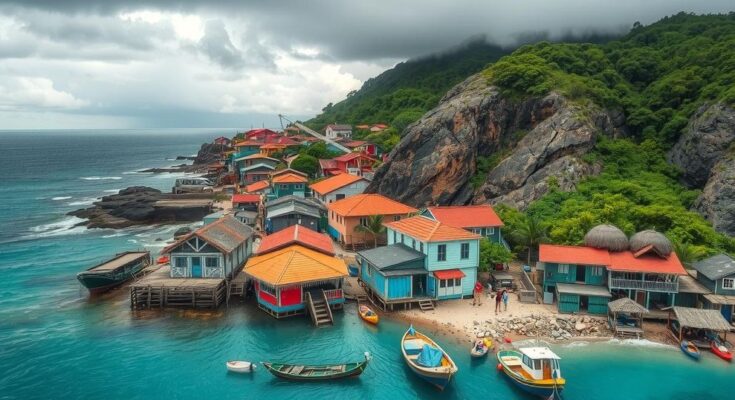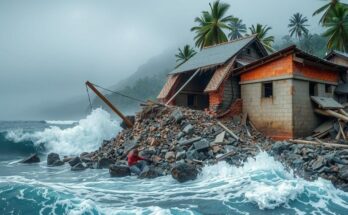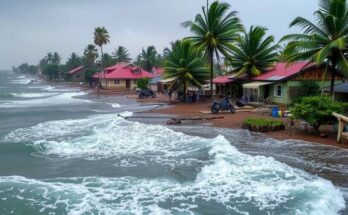Brazil has called for increased global efforts to adapt to climate change in light of the devastating effects of Cyclone Chido on Mayotte, which led to significant casualties and damage. As the host for the upcoming COP30 in 2025, Brazil emphasizes international collaboration and stronger climate commitments, while also enhancing its domestic environmental policies under President Lula da Silva.
The recent cyclone in Mayotte, a French archipelago in the Indian Ocean, underscores the urgent necessity for global adaptation strategies to counter the effects of climate change, as articulated by Brazil’s officials. In a statement released by the Brazilian foreign ministry, the nation extended its sympathies to those impacted by Cyclone Chido and urged international cooperation to enhance resilience against extreme weather conditions exacerbated by climate change. Brazil’s proactive stance comes as the country prepares to host COP30 in 2025, intending to drive momentum for ambitious climate commitments worldwide.
Following the devastation wrought by Cyclone Chido, which has predicted fatalities in the hundreds, Brazil has taken a lead on the international stage, advocating for more robust measures to address climate threats. With President Luiz Inacio Lula da Silva at the helm, Brazil has intensified efforts to reduce greenhouse gas emissions and combat deforestation, particularly in the Amazon rainforest. The country has recently announced plans that surpass previous goals for emission reductions and is pushing wealthier nations to provide enhanced financial support to developing countries facing climate challenges.
This article addresses the increasing urgency of climate change adaptation following the catastrophic impacts of Cyclone Chido on Mayotte. Brazil’s response reflects its leadership role in international climate discussions and their commitment to global cooperation. Notably, Brazil is preparing to host COP30, where it aims to promote proactive measures against climate change and advocate for more substantial support for vulnerable nations. Brazil’s recent environmental policies aim to scale back emissions and protect vital ecosystems, demonstrating the nation’s commitment to its climate goals.
In conclusion, the recent cyclone disaster in Mayotte has highlighted the pressing need for enhanced global actions to adapt to the challenges posed by climate change. Brazil’s response not only emphasizes its commitment to climate resilience but also positions the country as a key player in upcoming international climate negotiations. As Brazil prepares to host COP30, its calls for international cooperation on climate action serve as a reminder of the collective responsibility nations share in combating climate change and protecting vulnerable populations.
Original Source: www.barrons.com




